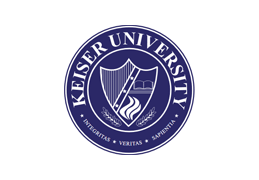When you enroll in a graduate degree program, you are making an investment in yourself and in your career. However, it’s also a commitment. You need to be able to devote the time necessary to the intensive studies required for success in these degree programs, and you need to have insights into graduate level financial aid and options to fund your education.
So, before you take the leap into graduate school, you may well ask yourself, “Is a graduate degree worth it?”
Value of a Graduate Degree
The value of a graduate degree can be measured in a variety of ways. If you are considering graduate school, the best thing you can do is perform a cost-benefit analysis to determine if this endeavor will prove worthwhile.
These are the factors you should consider when trying to determine the value of pursuing a graduate degree.
- The gross versus net cost of the program as well as any out-of-pocket investments.
- Any financial aid that may be available to you.
- The time it will take to complete the degree program.
- The impact the degree could have on your salary and career advancement.
- The ability of the degree to improve your credentials.
- The knowledge and skills you will acquire throughout the degree program.
Finances and Investment
Regardless of the graduate degree program you pursue, you will have to make a financial investment to further your education. Understanding the cost of your graduate degree and being aware of the financial aid you may qualify for will help you determine if this is the right step for your career.
Is Graduate School Worth the Cost?
Graduate degree cost can vary significantly from one program to another and from one university to another. Knowing the cost of your program and comparing it to the benefits of a graduate degree can help you determine if it is worth the investment of your time and resources.
The Cost of Graduate School
Knowing how much graduate school costs can play a pivotal role in your decision to enroll in a program. Like any degree program, a master’s or doctoral degree will require a financial investment on your part. However, it’s important to know that there are financing options available that can make these degrees more attainable and affordable. Scholarships, financial aid and low-interest student loans can help subsidize your graduate degree cost.
The Cost of a Master’s Degree Program
A master’s degree program is generally a more affordable graduate degree option than a doctoral degree, but the cost of this degree will vary based on the program you choose, the university you attend, transfer credits awarded and the length of the program.
Cost should also be measured in terms of gross versus net costs. Gross costs are the sum of all tuition and fees without factoring in any other variables. Net costs are the sum of all tuition and fees minus scholarships, financial aid, student loans, transfer of credit, and any available employer provided tuition assistance or reimbursement funding. This will provide a true assessment into ability and willingness to pay, which ultimately will help you make a cost-benefit-based decision.
According to the Education Data Initiative, a master’s degree program costs anywhere from $30,000 to $120,000, with the average cost of a master’s degree close to $62,000.
The Cost of a Doctoral Degree Program
A doctoral degree program can be a more costly endeavor, but it also takes longer to complete and can catapult your career to new heights, depending on your field. Like a master’s degree program, the total cost of your doctoral degree will depend on the program you choose, the university you attend, transfer credits awarded and the overall length of the degree program.
According to the Education Data Initiative, a doctoral degree program can cost between $100,000 and $300,000. The data reveals that the average doctoral degree program costs about $150,000.
In addition, when considering the cost of a Doctoral Degree Program, the volume of people who obtain their degree must be addressed. In the hierarchy of U.S. college degrees, the highest level of education is known as a terminal degree, more commonly called a doctorate or doctoral degree. Very few people — 4.5 million out of the 258.3 million adults in the U.S., or less than 2% of the adult population — have earned the highest degree available.
Calculating the Cost of a Graduate Degree
There are several factors that you need to consider when calculating the cost of your graduate degree. According to NerdWallet, these are the factors that will play into the final cost of your degree:
- The length of the program. The number of credit hours required for the program will directly impact the total cost of your tuition as well as overall time to completion. The average master’s degree program takes about one (full-time) to two years (part-time) to complete, making it a more affordable option than a doctoral degree, which can take between three (full-time) and eight years (part-time) to complete. Time to completion for a doctorate degree is most contingent on length of time to complete the dissertation or applied doctoral project as well as specialization of program.
- The university you attend. Larger, elite institutions can charge more for tuition based on name recognition alone. However, you can still receive a high-quality education from a reputable university for a lower cost. It’s important to explore the costs associated with various universities to find a school that is both respected and affordable.
- The program you choose. Some graduate degree programs cost more than others, simply because of the coursework involved and the specific field that it focuses on. For example, a master’s in public policy may cost less than a Master of Business Administration from the same university.
- The delivery of the program. In general, online programs are more affordable than in-person graduate degree programs that require you to attend class in person. Increased costs for on-campus programs may include childcare, transportation and costs associated with time in general.
- The transfer of credit. The number of credits transferred into your program can also be a significant factor in your decision as the more transfer friendly the institution, the greater potential for time and cost savings.
Hard Costs and Opportunity Costs
There are two types of costs to consider when pursuing a graduate degree. The hard costs of your degree are the actual costs of the program itself, whereas the opportunity costs are the costs associated with pursuing a graduate degree.
For example, the hard costs of your program include the tuition, the price of materials for your courses and any additional fees the university charges. The opportunity costs, on the other hand, include any lost income that you may experience as you pursue a degree full-time or part-time, additional housing costs associated with attending (if applicable) or any costs to purchase new technology.
Student Loans and Debt
Many aspiring graduate students must weigh the cost of accruing more debt through student loans versus the benefit of increased earning potential in the future. Most students who earn a graduate degree end up earning a higher salary over time than those who only earn a bachelor’s degree. That said, it’s still important to weigh your options and thoughtfully consider the impact of taking out student loans to earn a graduate degree.
These are some factors you should consider before you take out student loans to cover the cost of your graduate degree:
- The amount of the loan.
- The interest rate on the loan.
- The terms of the loan.
- Your ability to pay off the loan in a timely fashion.
- The weekly earnings increase you could anticipate after you graduate.
An understanding of all the funding options available will help you make a decision that allows you to minimize student loan costs; meanwhile, maximizing other funding sources such as scholarships, stipends, military funding, employer tuition assistance and reimbursement benefits.
Ultimately, you need to consider the job market for your specific field and determine whether it is worthwhile to take out student loans to earn a graduate degree.
Economic Benefits of a Graduate Degree
The economic benefits of a graduate degree can be significant, but this also can depend on your specific field. Knowing the return that you will enjoy on your investment can be a motivating factor in pursuing a graduate degree.
Return on Investment
You can calculate your return on your investment in a variety of ways. Students want to know how much their graduate degree will increase their earning potential. Data from U.S. News and World Report shows that the average person with a bachelor’s degree earns about $1,300 per week, while an individual with a master’s degree earns roughly $1,500 per week and a professional with a doctoral degree earns closer to $1,900 per week.
It’s safe to say that many people who earn a graduate degree go on to increase their earning potential, but the financial return on your investment will vary depending on your specific field.
However, you may also enjoy benefits that extend beyond a salary boost. Some additional benefits of a graduate degree to consider include:
- Professional Relationships — Graduate school is a powerful networking opportunity. Not only can you develop lasting professional relationships with your professors and instructors, but you also will be able to meet like-minded professionals in your field interested in advancing their careers. In some cases, graduate school students can discover job opportunities through these relationships.
- Professional Practice — Depending on your program, you may have the opportunity to complete an internship, externship, an applied research project, or research dissertation. These experiences can give you professional practice that allows you to develop the skills you need to take your career to the next level.
- Personal Satisfaction — For many, earning a master’s or doctoral degree is a personal goal. When you complete your graduate degree program, you will feel satisfied knowing that you accomplished something you have always wanted to do.
Potential Earnings and Salary Growth
Your salary growth after earning a graduate degree will depend on your field and the type of role that you want to pursue upon degree completion.
According to CNBC, some of the master’s degree programs that result in the largest potential salary growth include:
- Biology — 87 percent growth in potential earnings
- Business Administration — 51 percent growth in potential earnings
- Education — 50 percent growth in potential earnings
- Communications — 47 percent growth in potential earnings
- Psychology — 43 percent growth in potential earnings
In addition to looking at your specific field, you will want to consider the job market. In some cases, a graduate degree alone will not differentiate you enough. If a market is saturated, you may want to consider specializations that will allow you to establish a niche within your industry.
Scholarships, Stipends, and Employer Tuition Assistance or Reimbursement
Scholarships, stipends and employer tuition assistance or reimbursement programs can help offset your graduate degree cost and allow you to enjoy your investment return in a shorter amount of time. These financial aid packages may be awarded based on merit, military service, prior performance or financial need and can provide you with additional support as you seek to complete your graduate degree. It’s worth taking the time to explore any supplemental funding options that may be available to you.
Add Value to Your Career With a Graduate Degree
The benefits of a graduate degree extend beyond career advancement and increased earning potential. Your graduate degree program will also provide you with personal satisfaction and additional soft skills that will help you succeed in any profession that you pursue.
No matter what industry or field you are involved in, you will find that Keiser University Graduate School has a program for you. We offer a vast range of master’s and doctoral degree programs in a variety of industries, including business, education, healthcare and more. Our skills-based graduate degree programs are designed to provide students with the advanced knowledge and skills required for them to pursue higher-level positions within their chosen fields.
Request more information about our graduate degree programs today, or contact a graduate admissions counselor to determine which program might be the best fit for you.






 The instructors at Keiser University impacted my life. They believed in my ability to become a great graphic designer, regardless of how I felt about my skills. KU helped to prepare me for the real world and got me to where I am today.
The instructors at Keiser University impacted my life. They believed in my ability to become a great graphic designer, regardless of how I felt about my skills. KU helped to prepare me for the real world and got me to where I am today.
